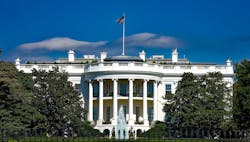Biden directs release of SPR oil to help restrain prices
President Biden has directed the Energy Department to release 50 million bbl from the Strategic Petroleum Reserve (SPR) over the next several months to tamp down oil prices after many weeks of political argument and criticism over inflation.
The Nov. 23 announcements from the White House and the Energy Department said 32 million bbl would be released in an exchange program, with company bids due by Dec. 6 and deliveries set for January through April. The companies will need to resupply the SPR with exchange crude, plus additional volumes, over 2022, 2023, and 2024.
In addition, 18 million bbl will be sold, with a notice of sale to be issued no sooner than Dec. 17, under authority of a 2018 budget act that included provisions for SPR sales.
The SPR release “will be taken in parallel with other major energy consuming nations including China, India, Japan, Republic of Korea and the United Kingdom,” the White House said.
Markets have been anticipating the government steps, according to both the White House and energy analysts. The price of New York Mercantile Exchange crude oil, pegged to West Texas Intermediate, floated mostly above $80/bbl over the last 6 weeks and on some days exceeded $84, but it slumped below $76 during trading Nov. 19 and 22 before partially rebounding.
The administration echoed market analysts in attributing recent oil price inflation primarily to a US economic rebound that has been moving faster than a rebound in oil production. The White House cited elevated gasoline pump prices and home heating bills as particular points of concern.
“Today’s announcement reflects the president’s commitment to do everything in his power to bring down costs for the American people,” the White House said.
Better energy policies wanted
A strong reaction was issued not only from Republican critics of Biden but from Sen. Joe Manchin (D-W.Va.), whose positions can be crucial to shaping energy legislation in the equally divided Senate.
Calling the SPR release plan “an important policy Band-Aid for rising gas prices,” Manchin said the decision “does not solve the self-inflicted wound that shortsighted energy policy is having on our nation.”
Inflation “and the lack of a comprehensive all-of-the-above energy policy pose a clear and present threat to America’s economic and energy security that can no longer be ignored,” Manchin said.
“I continue to call on President Biden to responsibly increase energy production here at home and to reverse course to allow the Keystone XL pipeline to be built,” Manchin said.
“Americans should not depend on foreign actors, like OPEC+, for our energy security,” the senator said, referring to the Organization of the Petroleum Exporting Countries and its allies led by Russia.
The SPR release may dovetail with market dynamics already anticipated by analysts. Rob Thummel, an energy portfolio manager at investment firm TortoiseEcofin, wrote in response to the SPR announcement that the current pattern of global supplies lagging global demand is not expected to last through 2022.
“As the global oil supply deficit has increased throughout 2021, oil inventories have fallen and oil prices have increased,” Thummel said. “The global oil market is forecasted to flip to being oversupplied in 2022; therefore, global inventories will likely rise and prices could fall.”
About the Author
Alan Kovski
Washington Correspondent
Alan Kovski worked as OGJ's Washington Correspondent from 2019 through 2023.
